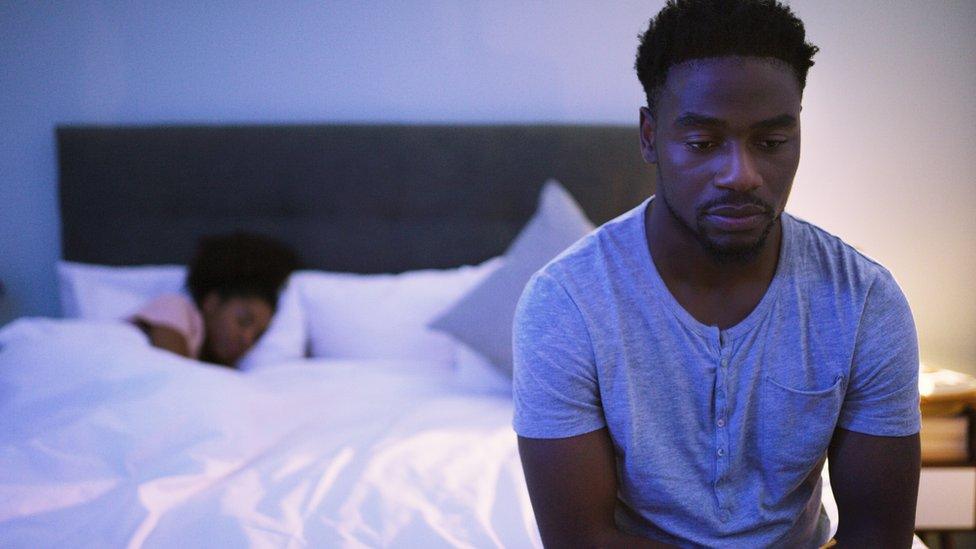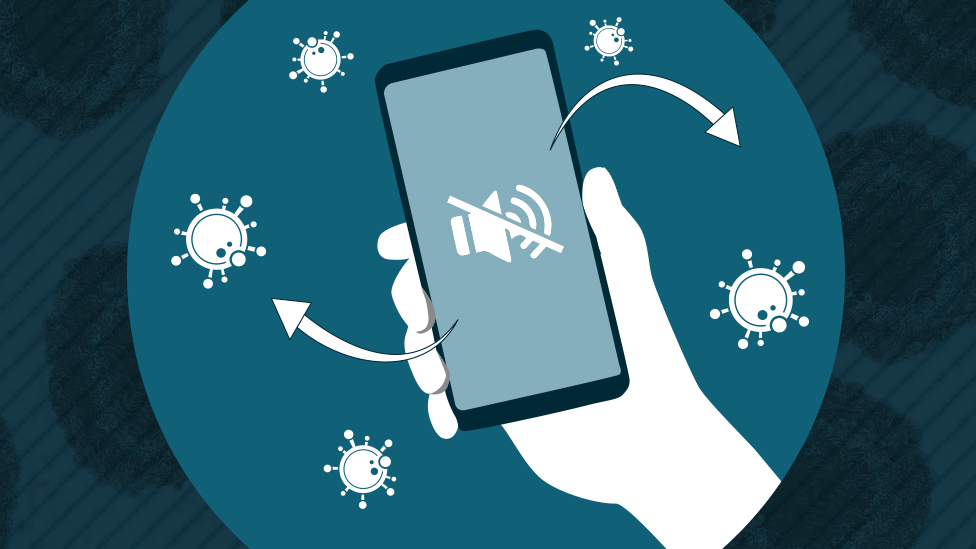Coronavirus: How to get to sleep during lockdown
- Published

Your hot water bottle is all warmed up, you've not looked at your phone for the past hour, you've just counted your 600th sheep - backwards - and yet still, sleep won't come. Sound familiar?
Since the coronavirus lockdown, the hashtag "can't sleep" has been trending, with tales of people struggling to get their heads down for the night.
One of those people is Laura Coppell.
"Before the lockdown, I would sleep like a log. But now it's the opposite," the 26-year-old tells Newsbeat.
If that's you, here's how you can reverse that trend.
1. Routine
Laura says her daily pattern has gone out of the window.
"Normally, it's wake up early, go to the gym, go to work, then gym and sleep," she says. But she's been furloughed - when you're not working but are kept on your employer's payroll - which means life doesn't have the same structure as before.

Laura says nothing in her life "is set in stone as before"
Routine is the most important factor in getting good sleep, according to Professor Kevin Morgan. He's a psychologist from Loughborough University who's been running sleep studies for years.
With the lockdown causing a "rupture" in our routines, Kevin says it's unsurprising people are finding it hard.
"Routine is the guardian of good sleep. It protects our sleep," he says.
Even if your life has changed recently, Kevin recommends preserving your old sleeping pattern if you want a good night's kip.
"Get up at your normal time and go to bed at the normal time, however tempting it might be to do otherwise."
And those extra naps some of us are now taking? We've got bad news. "You've got to save your sleepiness for bedtime. Treat being sleepy as a precious resource and don't waste it on a short daytime nap."
2. Daylight
We can't visit as many places as we used to, so we might not be getting out as much. That's bad news for our sleep because a little daylight can go a long way.
Our eyes need exposure to outdoor light because of a hormone in our body called melatonin - it regulates our sleep and wake pattern.
"It's the only way the body has of knowing whether it's light or dark."
If we stay indoors, it means a lack of exposure to proper light, which reduces melatonin levels.

You need to stay 2 metres away from people when exercising outdoors
Kevin suggests doing your daily exercise outside and taking advantage of the outdoor activities you're allowed to do during lockdown.
"And even if it's sunny, don't take sunglasses, get the sun into your eyes," Kevin says. "That will increase your sleep quality and your mood."
To (hopefully) improve the results even more? Go outside at the same time each day, so it becomes part of your daily routine.
3. 'Park your stress'
It's normal to have worries and stress at a time like this - Laura says her stress and anxiety levels have risen since the lockdown.
"There's so much uncertainty - we've never been in this situation before... Will it go back to normal? Or is this the new normal? It's that unknown which causes me stress and anxiety."
Kevin says we "all have concerns, whether it's our families, our own health or our jobs. It's hard to be locked up in your own home without being reminded we're in serious times".
Allow X content?
This article contains content provided by X. We ask for your permission before anything is loaded, as they may be using cookies and other technologies. You may want to read X’s cookie policy, external and privacy policy, external before accepting. To view this content choose ‘accept and continue’.

But while it's OK to be worried, Prof Kevin says we should try not to take those worries to bed.
"Tell yourself you've done all you can for that day and there's nothing more to do. Then pick it up again the next day, after a good night's sleep."
If you need help dealing with stress, here's some more advice that might be useful.
4. Think about your space
If you're working from home and are lucky enough to have options about where in the house you work, avoid your bedroom - your mind associates it with it being time to sleep.
"Don't go near the bed. Don't sit on it or lie on it - until you actually need to go and sleep."
If it's unavoidable, Kevin suggests changing how the bed looks.
"Throw a cover on top and change its appearance, so you continue to only associate it with sleep.
"Ultimately, it's about trying to trick your mind that things are normal."
Like Minds: Why insomnia affects your mental health
5. Alcohol...
You may have a bit more time for TV and films nowadays, activities it might be tempting to have a drink with. But Kevin says that while alcohol can help us get to sleep faster, it's not good in the long-term.
"It ultimately just damages the structure and quality of our sleep."
Kevin suggests if you are going to drink, you should do it "at the same time as you normally would - and drink the same amount you normally would".

HOSPITAL SPECIAL: The human stories behind the headlines
JESSE LINGARD'S HOME WORKOUT: Can you keep up?


Follow Newsbeat on Instagram, external, Facebook, external, Twitter, external and YouTube, external.
Listen to Newsbeat live at 12:45 and 17:45 weekdays - or listen back here.
- Published16 March 2020

- Published22 March 2020
